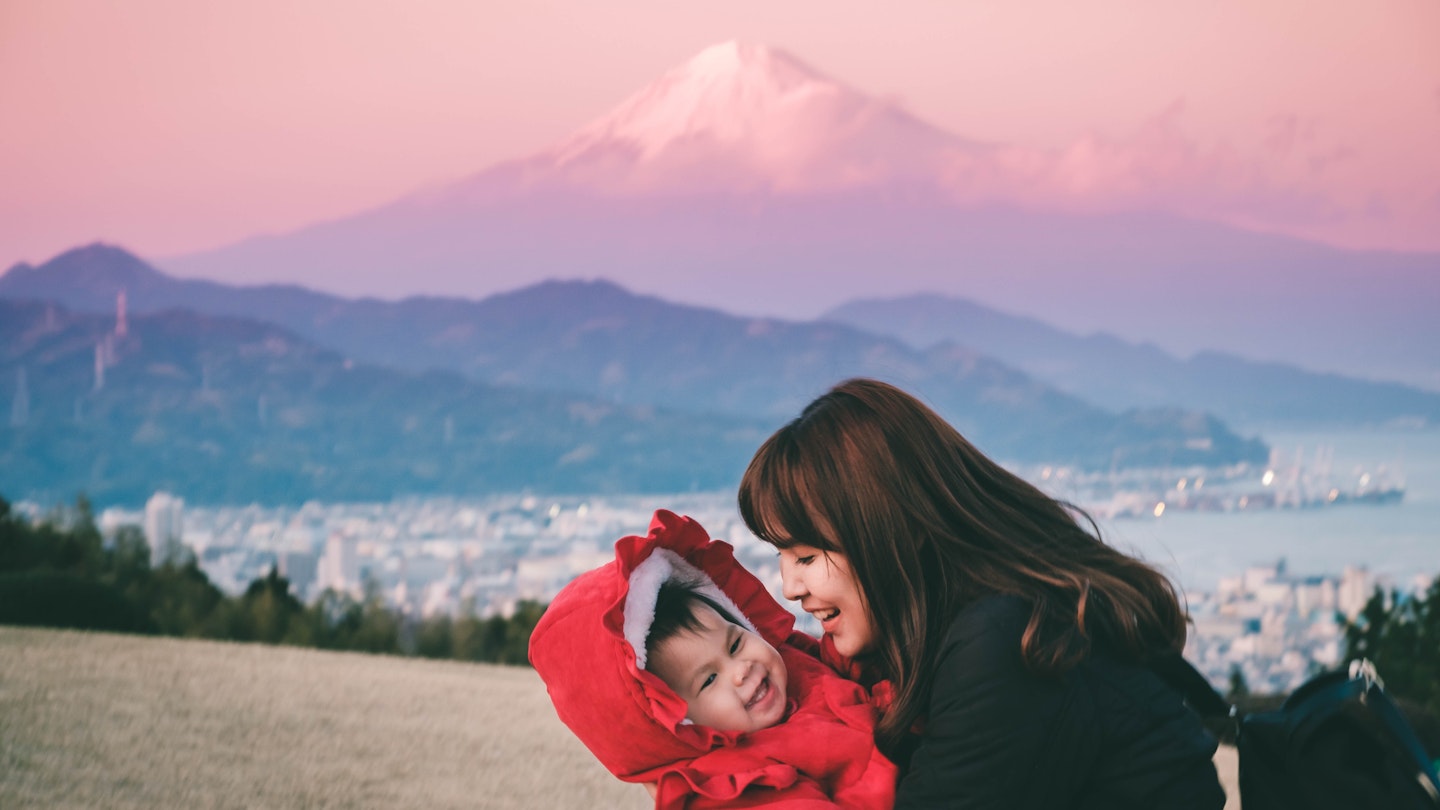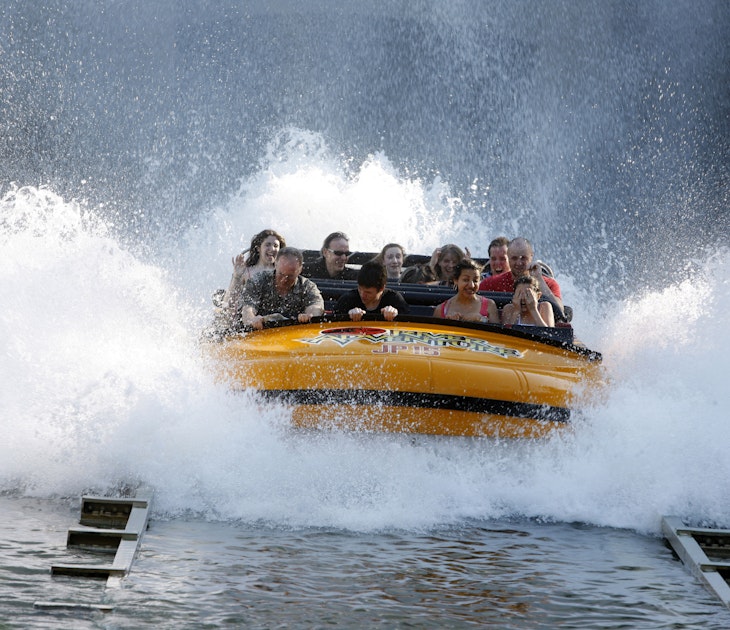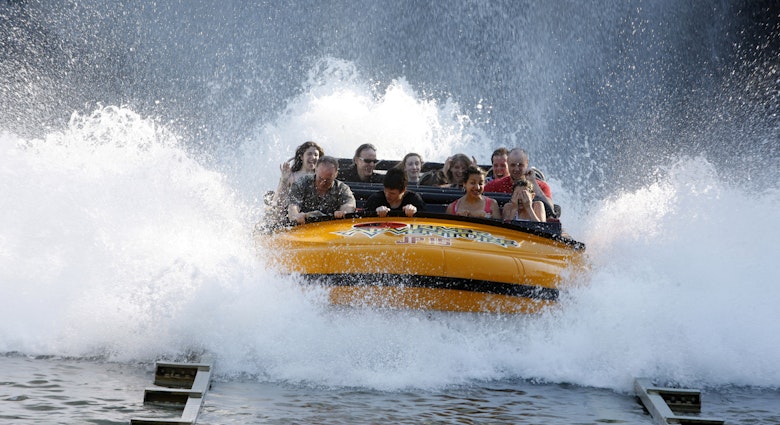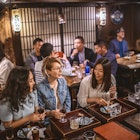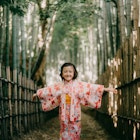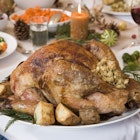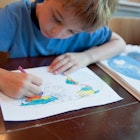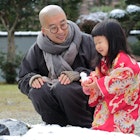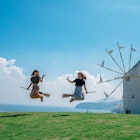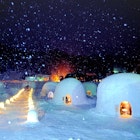No matter where you go in Japan, you’ll find it’s an easy, fun, safe place to travel with kids.
What’s more, with one of the world’s lowest birth rates, Japan is likely to welcome you and your kiddos with open arms. Many older people, without grandchildren of their own, will dote on yours. While there are certainly some places that are for adults only, most hotels, restaurants and even car rental agencies have equipment and are happy to accommodate families. Add to that the “wow!” factor that your kids will have traveling through a unique, vibrant and fascinating country, and you’re sure to have a trip of a lifetime.
Here are our top tips and recommendations that will make your family trip to Japan a success.
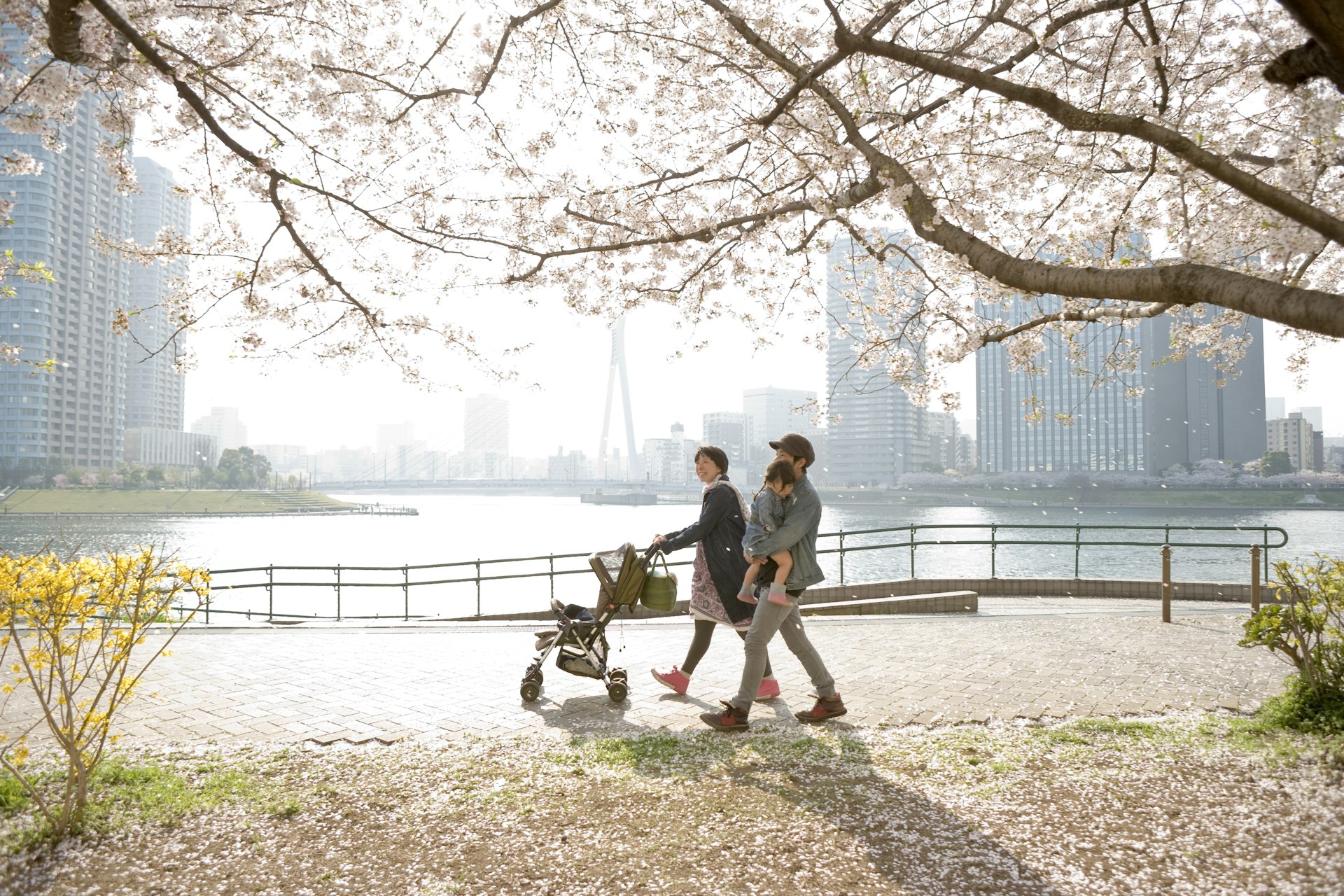
What makes Japan good for kids?
Japan has fascinating festivals to witness (or even participate in!), great restaurants to dine at, interesting museums and temples, and your kids may even know more than you do about Japanese culture – especially if they’re Ghibli fans or enjoy manga and anime. That said, there are some things to be aware of and a few precautions that can make a trip go even more smoothly.
If you’re traveling with really little ones – babies or toddlers – you’ll likely want to bring (or perhaps rent) a small, lightweight stroller. Subways do have elevators, but the narrow escalators can be tricky to safely use with a bulky stroller, and depending on where you go, there may be lots of stairways. Having a stroller that folds up to not much more than an umbrella is a godsend.
Nearly all restaurants and hotels have accommodations like high chairs, but keep in mind that Japan hasn’t had much need to invest in the latest and greatest when it comes to kiddo equipment. While spotlessly clean, these things may be older and more tippy than what you’re used to at home. They’ll still get the job done, but you’ll want to be alert.
Nursing mothers will find that nearly all public areas (such as train stations and airports) have lockable “family” bathrooms that you're welcome to use for changing a diaper or breastfeeding. Open breastfeeding is uncommon, but inconspicuously feeding under a shawl or cloak won’t raise eyebrows.
And Japanese people are pretty easy-going about a noisy kid, too, so you don’t need to be too quick to shush them if they’re getting loud or having too much fun. Playgrounds are found in many parks, apartment complexes and rest areas. They’re rarely private, so in most cases, you can enjoy them at will.
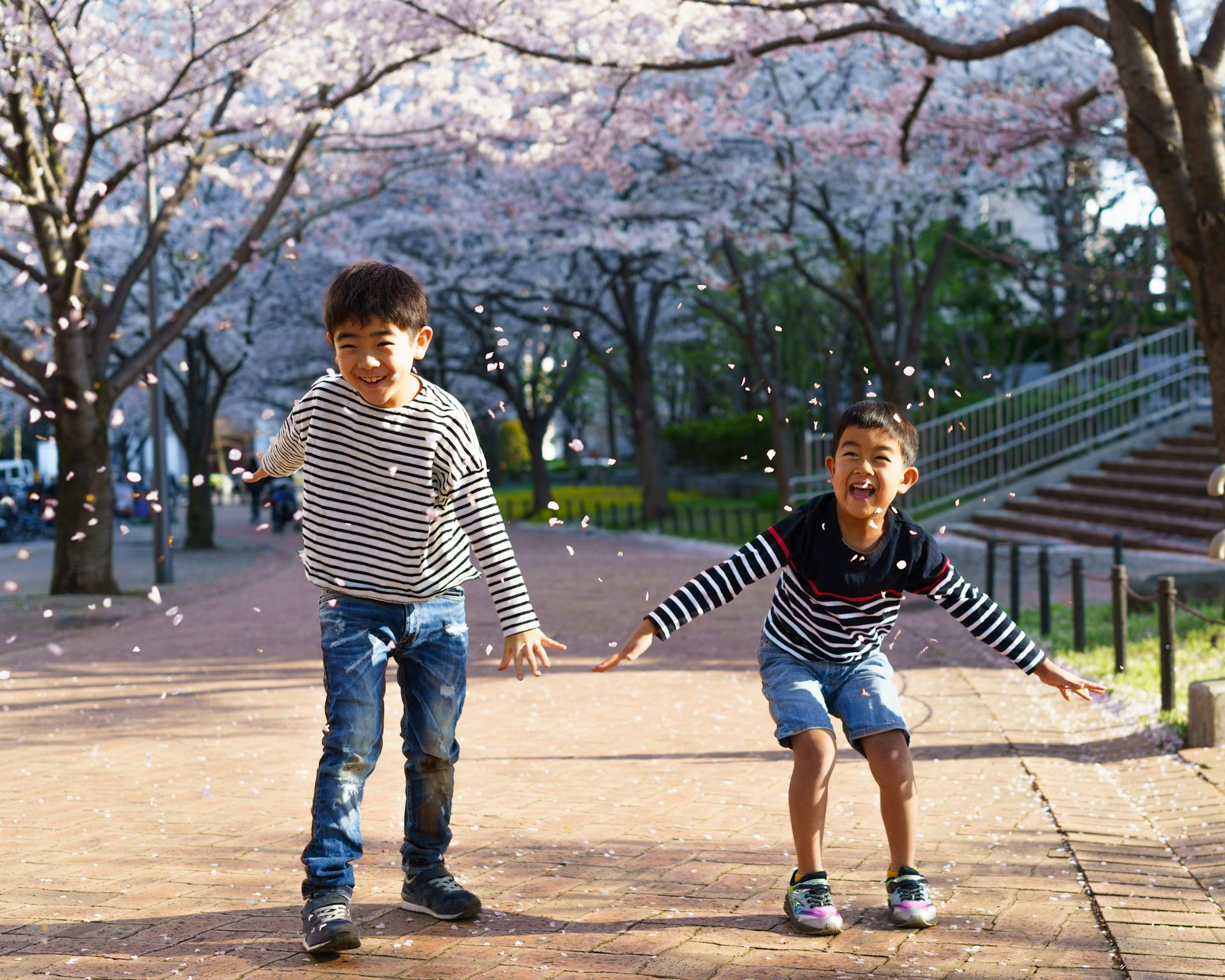
There are two important things a family traveling with kids in Japan will want to prepare for:
- Crowds: If you’re traveling at peak times, the crowds can be mind-boggling, and it’s easy to get separated if you’re not careful. Make sure (in a park or temple) that you’ve set a meeting spot. In places like a subway, you may want to invest in a backpack leash set so your child won’t get swept away by the hordes.
- Quick train transfers: Japan’s trains run on time, always to the minute and sometimes to the second. They do this by opening the doors quickly and shutting them the moment folks have gotten into or out of the cars. If you’re busy wrangling kids and trying to get luggage to the door at the last minute, you may miss that chance to get on or off – or worse, some of you will get out, and some won’t. Plan ahead by keeping careful track of when your stops are, make sure (if you’re a two-parent family) that one parent gets out first and the other gets out last, bookending the kids, and have a plan in place if the train leaves while someone’s still on it. For example, tell your kids to get off at the next stop, find a police officer and wait for you to get them.
Where is best in Japan for kids?
Japan is a playground that kids will adore no matter what age they are. Majestic Mt Fuji will impress young travelers of any age, as will the many castles, temples and Japanese gardens.
Tiny tots will love the goldfish and koi ponds found in almost any temple, the interesting foods, and of course the Pokémon and Ghibli museums. Older kids may love all that too, plus the technological wonders of Tokyo’s Akihabara neighborhood or looking out at the sprawling metropolis from the famous Skytree.
But there’s so much more: river rafting in the countryside, steaming onsen baths, beautiful temples, hiking and skiing. Best of all, it’s safe and clean.
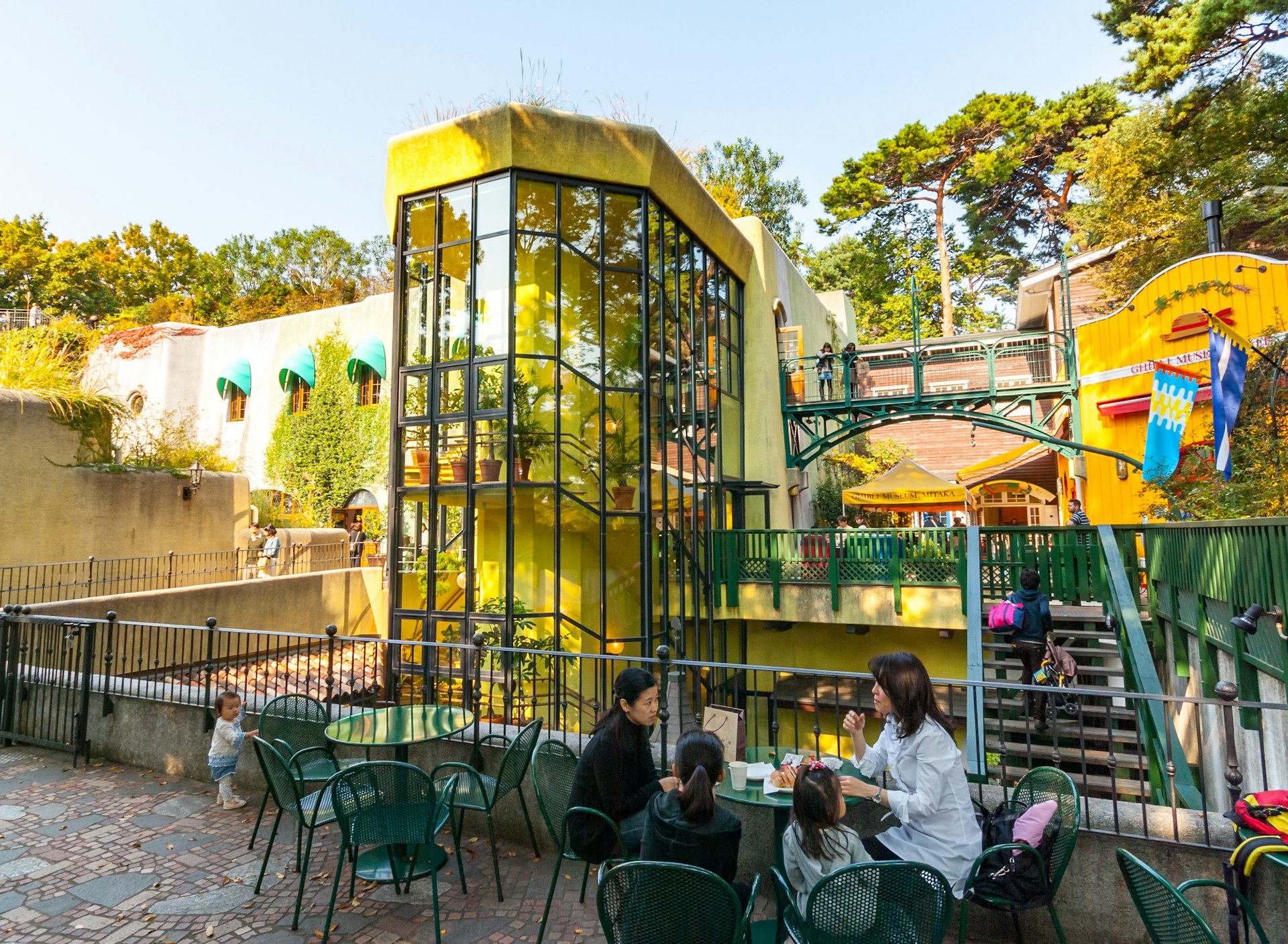
Best things to do in Japan with babies and toddlers
Enjoy the cherry blossoms
If you’re in Japan in March, you should bring your baby or toddler to a local cherry blossom viewing. Any major city will have a park or hilltop where the yoshino cherries thrive. In Tokyo, Ueno park and the Imperial Palace are excellent spots. Osaka Castle is also gorgeous at this time of year. It’s so popular that there’s even a cherry blossom forecast so you can plan the right weekend to visit. These gorgeous trees burst with pale pink blossoms in late spring, making for truly stunning photographs.
Bring food and drink and find a place to sit, enjoy the quiet beauty, or make friends with nearby families. And if you can't make it at cherry blossom time, the fall maple leaves generate similar excitement and are just as beautiful.
Reserve your spot at the Ghibli Museum
For toddlers who have seen a Ghibli movie or two, a trip to the Ghibli Museum will probably be a highlight of the trip. They can clamber over a stuffed version of the famous Nekobus, see original artworks, and take pictures with life-size figures of movie characters. There’s even an impressive bronze Laputa: Castle in the Sky robot. (It’s worth noting that just about any fan of Miyazaki Hayao will enjoy visiting, though there’s an age cutoff on clambering around on the Nekobus.)
If this is a key spot for your visit, you’ll need to plan months in advance, as reservations are necessary and will not be changed if you can’t come at the reserved time.
Visit Rabbit Island (Ōkunoshima)
Instead of just going to a zoo, which of course is fun for kids but can be done at home, consider a trip to Rabbit Island (known as Ōkunoshima), in Japan’s beautiful Inland Sea area. Once a location for poison gas production during World War II, this spot now has a number of hotels and literally thousands of free-roaming rabbits that are totally unafraid of people. The chance to see them up close and even feed them is a sweet, safe, fun thing that’s great for little ones. That said, like any wild animal, they can nip – you don’t want to encourage the tots to touch or hold them.
Feed the fish in the gardens, parks and castle grounds
Japanese gardens, parks, castles and museums often have impressive koi and goldfish ponds, and young tots love watching the beautiful colored fish swirl around in hopes of a handout. Often, there are fish-food pellets you can buy, but if not, just letting your child get close and personal with some friendly fish will be a hit. Kyoto’s beautiful Gold Pavilion and the Silver Pavilion have lovely ponds with fish and turtles to look for, but they’re found all over the country.
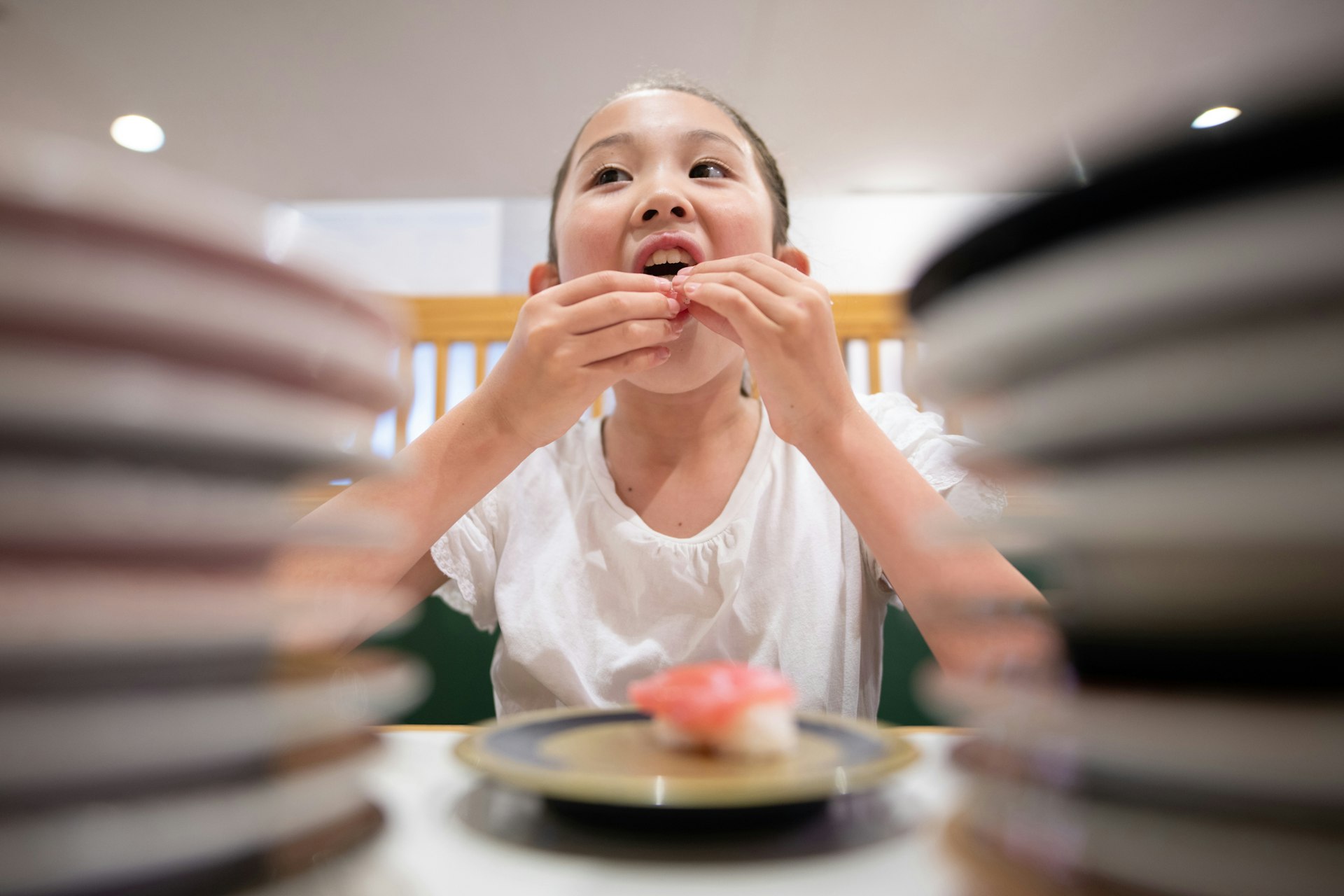
Best things to do in Japan with school-age kids
Eat well at a conveyor-belt sushi restaurant
Eating takes on a whole new meaning in Japan. Sushi is a ubiquitous staple, and seeing it trucking by on a conveyor belt is a hit with kids who are old enough to watch and only touch items they’re actually going to eat. Chances are there’s a place near your hotel, so ask at the front desk for directions.
Conveyor-belt restaurants are called kaiten-zushi in Japanese, and it’s mesmerizing to see the little plates pass by. Look out for the classic tuna and salmon nigiri, but you may see lots of unfamiliar seafood, too. Grab the ones that look tasty and give them a try. One note of caution: most booths have individual dispensers of boiling water for tea, which can cause a splash. Make sure kids don’t try to use it themselves until they’ve gotten the hang of it.
At the end of the meal, the bill is calculated by counting and sorting the empty plates, which are color-coded to the prices. In seconds, your server will stack and calculate the bill, and you’re on your way.
Ride Yokohama’s Cosmo Clock 21
For a bird’s eye view of a beautiful cityscape, hit Yokohama (a city near Tokyo) and take a ride on the unmissable Cosmo Clock 21, a giant Ferris wheel by the waterfront. As you ascend, you’ll enjoy picturesque views of the bay and the city. Interestingly, this was for a time the tallest Ferris wheel in Japan, until it was bested by only 0.5m (1.6ft) by one in Shiga prefecture. Not to be outdone, the crafty Yokohama-ians built a pedestal for their wheel that brought the height up by just enough to keep the title of “country’s tallest.” At least for now.
See the Great Buddha of Kamakura
Whatever your spirituality, the Great Buddha of Kamakura is a special site that’s worthy of a visit, and impresses even little kids. You can marvel at this enormous copper statue from the plaza in front, which is paved and easy to access with strollers. But the truly inquisitive will also want to go inside the structure (look behind for the entrance). Fascinatingly, this statue has endured typhoons and even tsunamis since the 1200s.
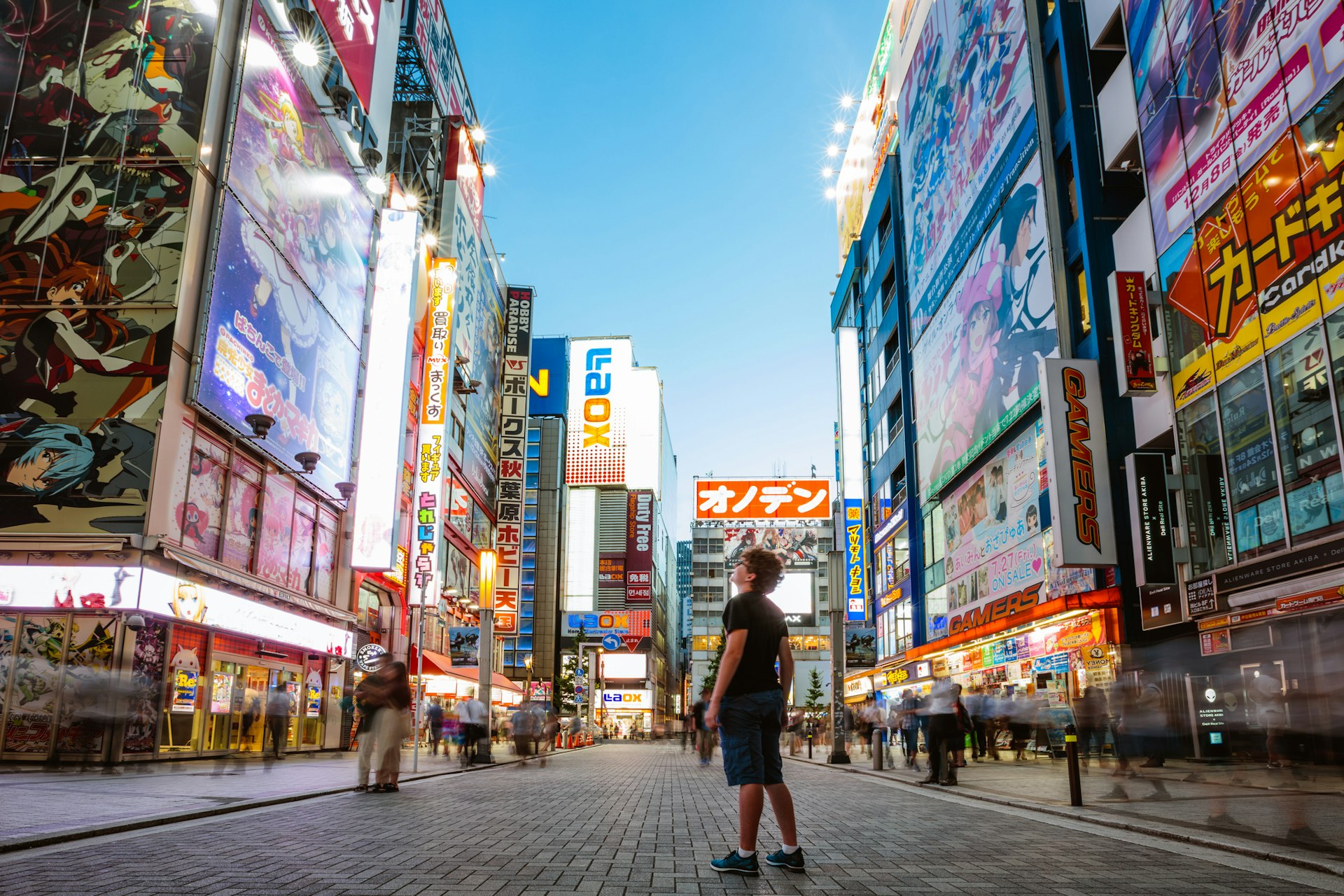
Best things to do in Japan with tweens and teenagers
Hike Mt Fuji
Young hikers will want to summit the incredible Mt Fuji, but it’s worth noting that this popular hike shouldn’t be undertaken lightly. You’ll find the peak is much colder than the base, and while you can ascend about halfway by car, the steepest parts of the climb will await you. Those wanting to see the sunrise should overnight partway up the slope, but the view of the asahi (morning sun) is worth it!
Visit an onsen
Japan’s delightful onsen – hot springs – are a treat for teens, tweens and even younger kids, though the latter should be careful as sometimes the water is very hot. You’ll find the most relaxing are those outside in the countryside, where a gurgling stream or chirping frogs might be the soundtrack, but even in Tokyo or Kyoto, you can find baths to enjoy. Note that no swimwear or even towels are allowed in the bathwater – this experience is strictly au naturel.
If you’re bashful about being naked with strangers (usually separated by gender, though there are mixed baths), ask for a “kashikiriburo” at your hotel: these are locked baths you reserve time in (often 60 minutes) and can bathe in private alone or with your family.
Marvel at Tokyo’s Akihabara district
The sheer size of Akihabara is overwhelming, street after street filled with towering skyscrapers selling electronics of every type imaginable. If your kid has been looking for a camera, phone, audio equipment or headphones, this is the place to find them, or at least to see what the future’s going to look like – because in Akihabara, the future is now.
See Hiroshima or Nagasaki
A trip to either of the cities of Hiroshima or Nagasaki will impress on anyone the horrors of nuclear technology, and the strength and courage of the human spirit. There’s no denying this is a somber, grim topic, but the Peace museums in both cities, with iconic structures and artifacts, are vivid reminders of how much we as a global people must work to ensure these awful events never happen again. Though some of the photos are graphic and even upsetting, kids will come away knowing more about the role these two cities played in WWII, and with a deeper understanding of how vital peace is.
Go skiing in spectacular snow
Snow lovers will find great skiing in places like Niseko, Furano or Zao Onsen, and lessons for tweens, teens and even toddlers are easy to arrange at any of the popular resorts. The winter fun doesn't stop on the slopes though: take a tour of the vast snow fields (some of them 6m/20ft deep) or cruise above the strange, gargoyle-like forms of the “snow monsters” – conifer trees that have been covered so much by wind-driven snow that they are unrecognizable. There are also the famous snow monkeys to look for, too!
Planning tips
- Trains are a fantastic way to see the country, and if you’re planning to travel around, consider getting a Japan Rail Pass (JR Pass). Available for seven, 14 or 21 days, these must be purchased outside of Japan, and the voucher exchanged once you arrive. Note that they’re not cheap, so you’ll want to do the math. With the pass, you can do all the travel you want, thanks to unlimited rides. It also lets you reserve seats in advance, making family travel that much easier. Note that many city trains and subways are not part of the JR Rail system.
- Many of the nicer hotels and ryokan (traditional Japanese inns) will have loaner family items, such as umbrellas, strollers and high chairs.
- If you run out of a product or need to buy additional ones, know that Japanese sizes for some items – such as diapers – can be a little small.
- Be aware that Japan prohibits some common medicines, such as popular antihistamines. If you or your child have hay fever, you may need to opt for a Japanese brand once you arrive.

